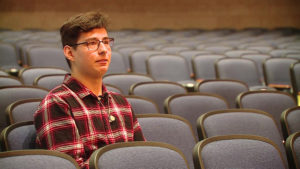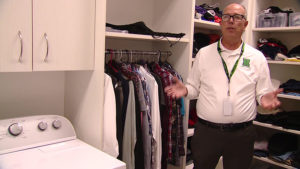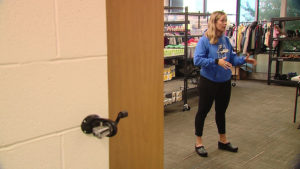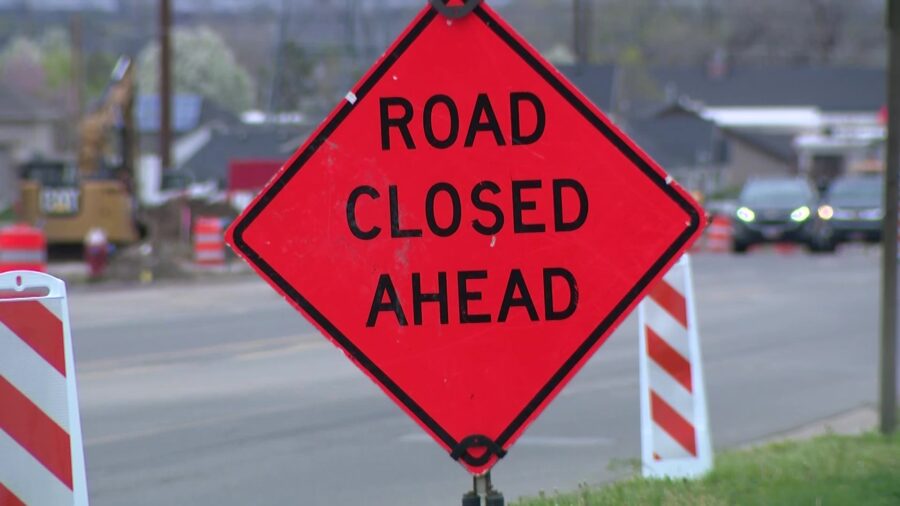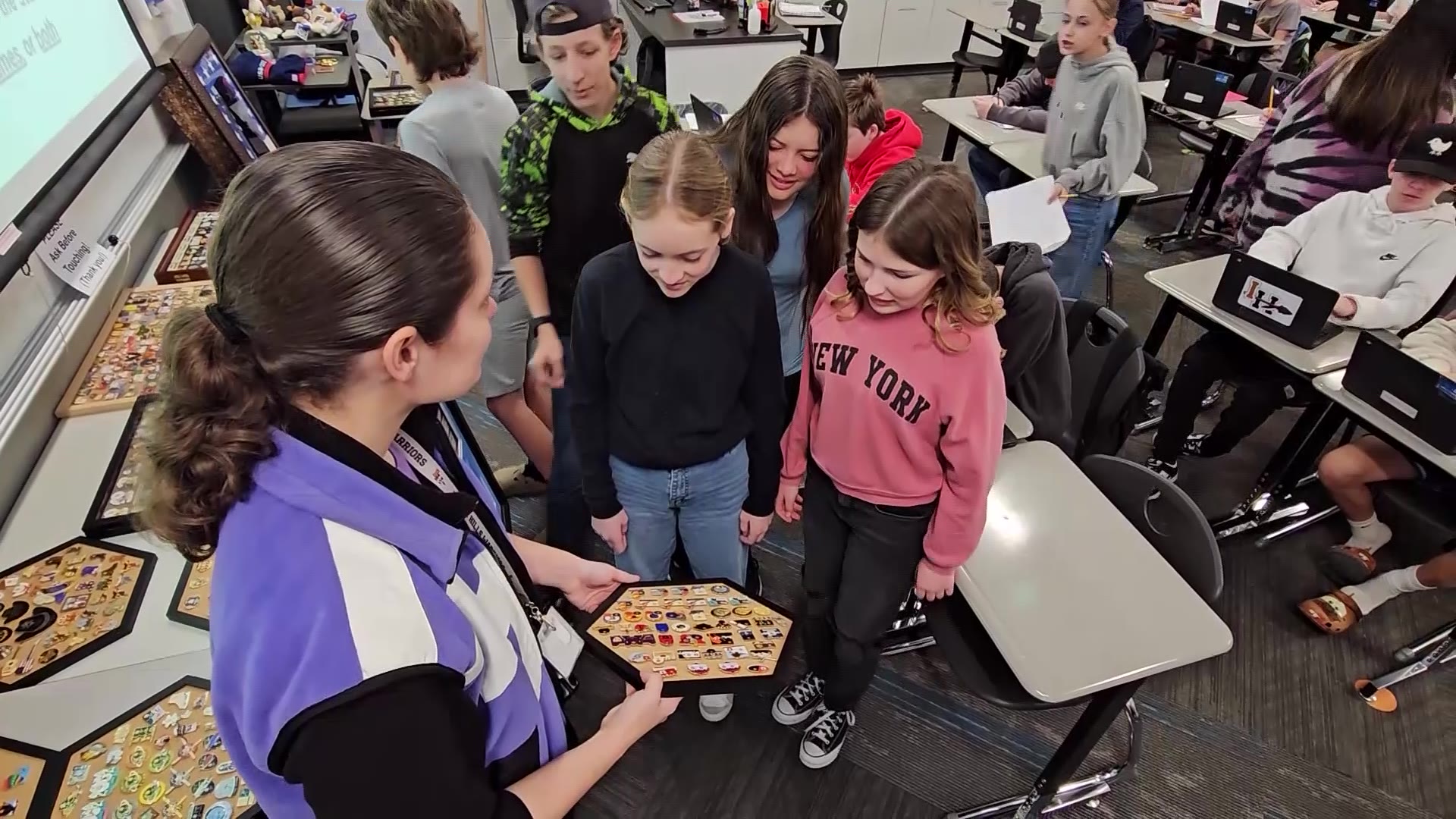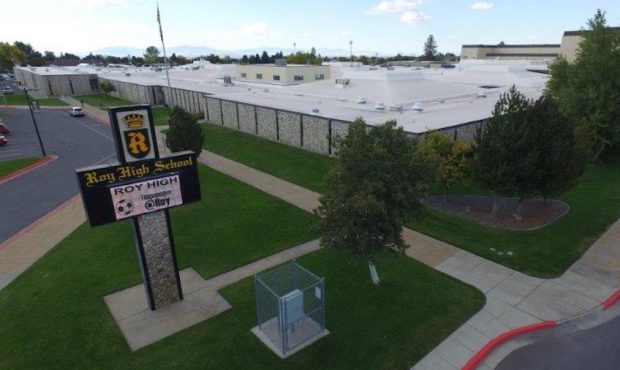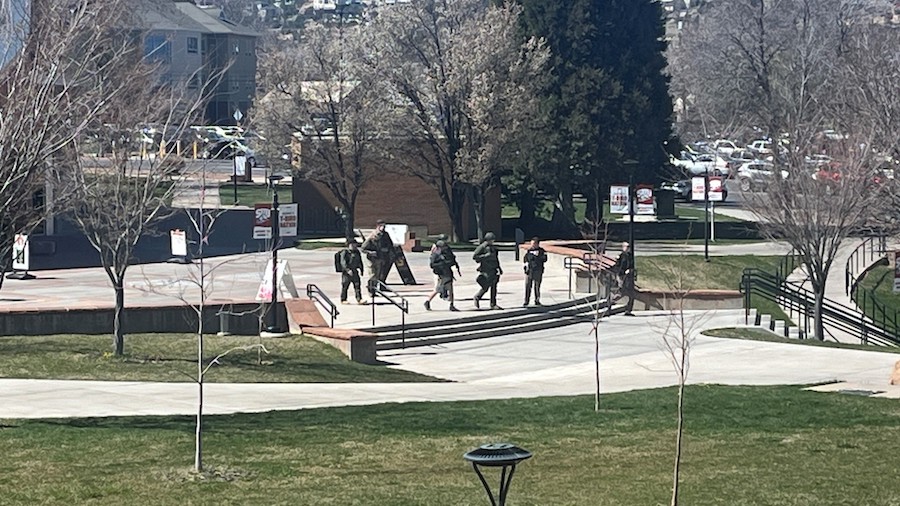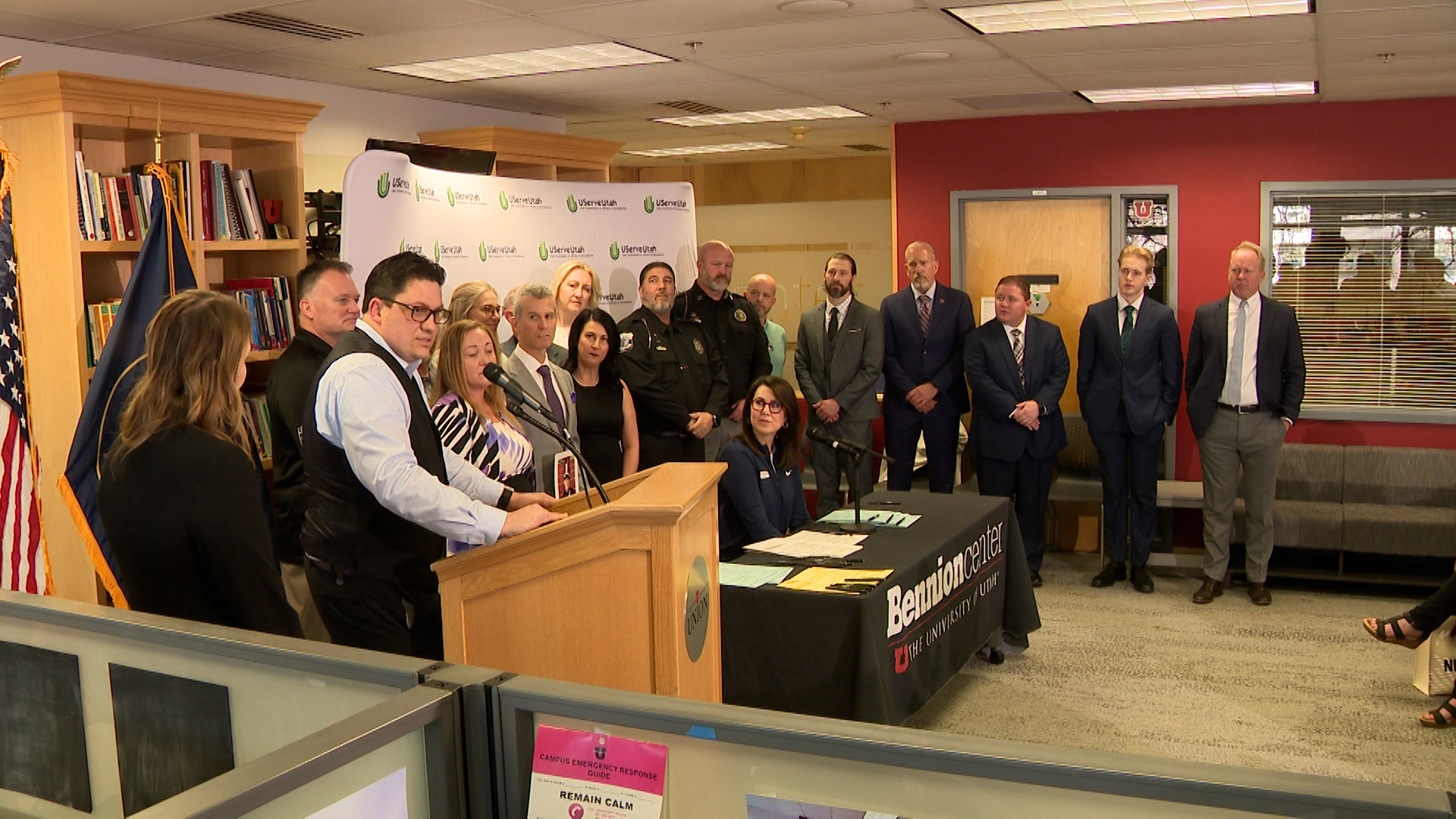Homeless to Hero: Former homeless teenager speaks to struggling teens
Nov 6, 2022, 10:20 PM | Updated: Nov 9, 2022, 1:19 pm
MURRAY, Utah — It was a surreal moment for 22-year-old Thomas Schwab, as he took the stage at Murray High School, where he graduated valedictorian four years ago.
‘It’s crazy to be here after so long,” Schwab expressed. He recently graduated first in his class from the Navy’s Nuclear Power School.
Schwab returned to Murray to speak to the students about homelessness, something he knows all too well. He was homeless for most of his teenage years.
“I would sleep in bushes, I would sleep under bridges,” he told the students seated in the auditorium. “When I was homeless, almost no one knew, almost no one knew.”
Those years of homelessness only defined the teenage years of his life. But it’s something that many students today can relate to and struggle with.
“We have about 50 registered homeless students at the school, that’s just the ones we know about,” said Quinn Linde, who is in his first year as Murray High School principal.
He said the need for on-campus social services to support struggling students is greater than ever.
“I think the days are gone where schools are simply providing academic supports for students, that is an area we need to hone in on, but we need to be all-inclusive,” Linde explained.
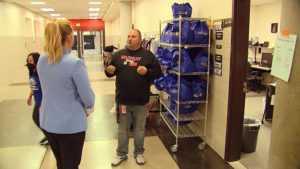
Murray High School’s Principal Quinn Linde explaining the need for on-campus social services (KSL-TV)
Schwab’s story inspired Murray resident Pamela Anderson to open the Spartan Closet inside the high school, a safe place where students can get food, clothing, toiletries and more.
“These kids need to know how amazing they are. They change lives, and we can change their lives just by being here,” Anderson expressed.
Right now, the Spartan Closet is a single closet with extra racks in the hallway where students can pick up weekend meal bags or grab a hoodie or jacket. But in the next few months, Linde plans on moving the closet to a bigger, more private space.
Ultimately, Linde would like to see a full-service student wellness center at Murray High, like the one built at Hillcrest High School in the Canyons School District.
“In our world today, students are coming to school not only hungry, they’re also coming to school with not a lot of opportunity for adequate hygiene and so we wanted to make sure we’re going to have the full service if we’re going to build it,” said Hillcrest High principal Gregory Leavitt.
When Hillcrest High was rebuilt in 2018, Leavitt pushed for a space dedicated to struggling families. Today, it’s called the Hillcrest Free Market.
“It is so important because we have so many students who are fluctuating between poverty and homelessness. They’re right on the edge,” Leavitt said.
The Hillcrest Free Market is a full-service food pantry with fresh meat and produce. Its clothing center has washers and dryers for families to use by appointment.
“We have vetted volunteers and paid employees that have been trained to work with families in a private, dignified way,” Leavitt explained. “And that’s why we do this by appointment, so they’re able to come in, use this facility privately, do their wash as a family, complete their hygiene needs as a family.”
The Hillcrest Free Market is also a place where students, who may be living at the homeless shelter, can safely take a shower.
“It gives them hope to be able to be clean and ready to go,” said Ari Tavo, assistant principal at Hillcrest High School, who helps oversee the facility. “Often they come in really sleeping, kind of disheveled so having this gives them an opportunity to start fresh, it doesn’t cure everything happening in their home life or after school, but at least gives them a sense of okay, I can start fresh today.”
Donations for the Hillcrest Free Market come from the United Way and Savage but also through private donors – sometimes even teachers. Leavitt says 200 unique families use the Hillcrest Free Market food pantry every month, and approximately 50 students or families use the shower or laundry facility each month.
“It’s a think tank of the best way to do this because we want this to be a safe, dignified place,” Leavitt said.
Back in the Murray School District, nearly every school has its own version of a wellness center.
At Hillcrest Junior High, it’s called Hillcrest Home Goods. It was put into action this year by social worker Courtney Nolan.
“I’ve had a couple of kiddos that have come in and they haven’t eaten in days, and they just want a warm meal, and they just want ramen,” Nolan said.
This year, 46% of students at Hillcrest Junior High are considered low-income. Nolan says families who were in the financial bubble before the COVID pandemic are now struggling to make ends meet.
“I think we still have a huge stigma in our country in general, talking about how we do struggle, and it’s okay to struggle,” Nolan said. “And I think we’re just really trying to make this an inviting place so that kids can share their story and make sure we’re taking care of each other.”
The increase in homeless students and struggling families is not unique to the Murray School District.
“This is happening everywhere,” said Jennifer Covington, Murray School District Superintendent.
Covington says thanks to partnerships with the Murray Children’s Pantry and donations from community partners, most of their school pantries are prepared to help students who are struggling with basic needs – but donations are always welcome.
“We’re not just focused on academics anymore, we can’t, because we can’t teach those kids unless they have those basic needs met,” said Covington. “I think it’s going to have to take a systemic change of looking at education as a whole, how do we broaden the scope of education beyond the academics to make sure we’re meeting the needs of the whole child.”
As the Murray School District continues to address the needs of its students and families, Thomas Schwab will continue using his story to bring awareness to the increasing homeless student population in Utah. He hopes his efforts will inspire others to look within their communities and offer to help.
“What I hope people learn is everyone is human, everyone has a life and feelings and deserves to be treated well and taken care of by the community,” Schwab said.
If you wish to help and donate to any of these programs, you can visit the Murray Education Foundation website or contact Doug Perry by email.


